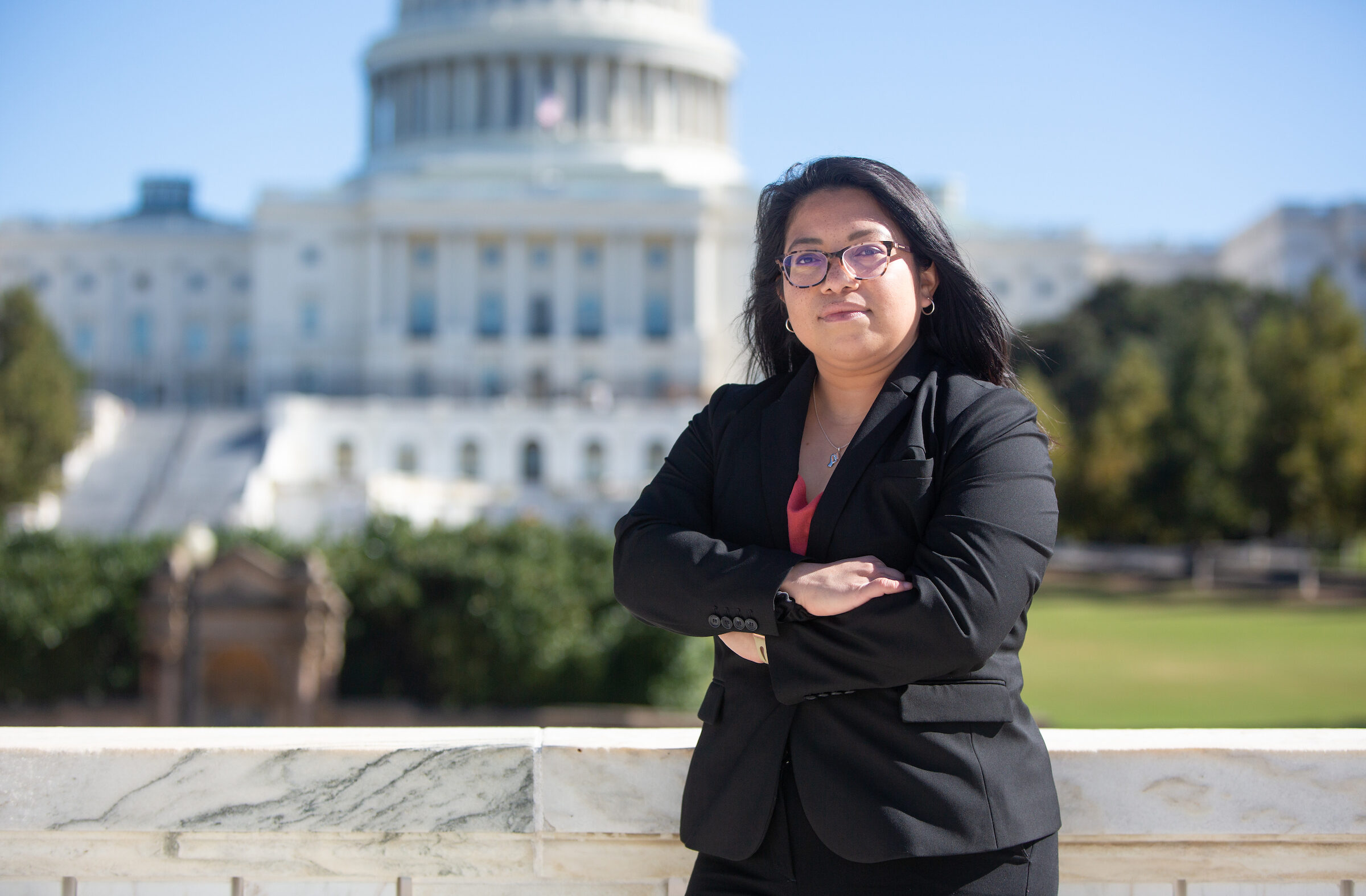This week, ACLU of Nebraska Interim Legal Director Rose Godinez testified before the House Select Subcommittee on the Coronavirus Crisis in a hearing focused on the pandemic’s impact on meatpacking workers.
This week, ACLU of Nebraska Interim Legal Director Rose Godinez testified before the House Select Subcommittee on the Coronavirus Crisis in a hearing focused on the pandemic’s impact on meatpacking workers.
Thousands of Nebraska meatpacking workers have grown ill from the virus, hundreds have needed hospitalization and dozens have died. Those are just the numbers we knew about prior to this week. Results of a new federal investigation show both hospitalizations and deaths among meatpacking workers were significantly higher than previously estimated.
As Godinez pointed out in her testimony, COVID-19 has had a devastating disparate impact on Nebraskans of color both because of longstanding inequities and the repeated failures of plant owners, state officials and federal officials to take the steps that were needed to save lives. As the virus reached a peak in Nebraska last summer, a staggering 60% of cases were people who identified as Hispanic, even though they comprise only 11% of our state's overall population. COVID-19 is both a racial justice and a public health emergency.
No one should go to work unprotected from COVID-19. Here's what Congress can do, right now, to better protect workers:
1. Enact the Safe Line Speeds in COVID-19 Act
This would protect meatpacking workers by preventing line speed increases during the COVID-19 pandemic in meatpacking plants. Moreover, the act includes an accountability measure to ensure the industry is implementing protections. We would support similar legislation that lasts beyond the pandemic as the meatpacking industry has a well-documented track record of alarmingly high injury rates, often due to the line speeds.
2. Call on OSHA to Issue an Emergency Temporary Standard
Congress should call on OSHA to issue an Emergency Temporary Standard for meatpacking workers that includes protections similar to those issued for the healthcare industry (PPE, proper ventilation, physical distancing, physical barriers, cleaning and disinfection, screening, paid leave for vaccinations, training, anti-retaliation notices, and recordkeeping).
3. Ensure OSHA is Responsive
Congress should ensure OSHA responds to and investigates complaints made by workers and advocates and consider adopting a federal requirement that OSHA investigate complaints within 14 days. If OSHA issues a citation, that fine should be applied immediately.
4. Support Comprehensive Immigration Reform
The reason many meatpacking workers were not willing to be plaintiffs in our lawsuit and would not testify before the Nebraska Legislature is because many of them are not U.S. citizens and this makes them vulnerable to retaliation or harassment if they voice complaints about their employer. It's long past time for comprehensive immigration reform.
While advocates, the ACLU and several partner organizations have made significant strides to protect meatpacking workers, more must be done. We will stay focused with our collective advocacy and organizing skills to protect the essential workers who feed our families. This work is grounded in hope and advances our shared values of racial justice, human rights and economic justice. By ensuring essential workers are treated with dignity and can work and live safely, we are protecting our communities, our food supply and our economy.

